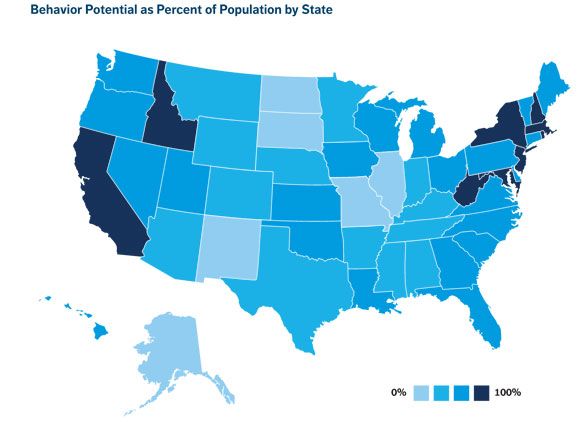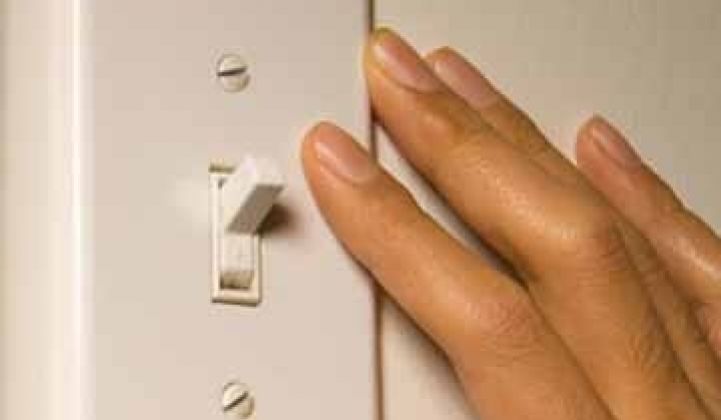Behavioral energy efficiency programs have proliferated in recent years, but they’ve barely gotten beyond the tip of the iceberg, according to a new white paper put out by Opower.
[We interrupt this article to bring you a bulletin: Opower, the utility-serving home energy efficiency and behavioral modification firm, is headed toward an IPO, according to The Wall Street Journal, which cites sources familiar with the matter. Morgan Stanley and Goldman Sachs are to be the lead underwriters. VC investors in Opower include KPCB, NEA, and Accel Partners. We'll keep you informed on the details as they emerge.]
Opower, of course, would like to tackle that iceberg and crush it in the blender for profits. The company, which is best known in the market for behavioral modification for residential energy usage, found that there are 80 million households -- nearly two-thirds of the U.S. population -- that could be served cost-effectively by behavioral programs.
If that penetration were to be reached, Opower estimates 19,000 avoided gigawatt-hours of electricity annually and consumer savings of $2.2 billion.

Opower sees the greatest potential in states with high costs, such as California and New York, as well as parts of the Southeast, which have very high air-conditioning loads. Some Southern states, however, still rely heavily on cheap fossil-fuel-fired power plants, so the costs associated with high and peak electricity demand do not garner robust investment in energy efficiency.
Increasingly, utilities are not taking an either-or approach to behavioral versus automated energy efficiency for homes. For utilities that are looking to delay new generation, such as Oklahoma Gas & Electric, there is often an automated component. For others that are plucking low-hanging fruit, monthly reports might be fine as a low-cost starting point.
Either way, there is no shortage of options on the market, and utilities are tailoring programs to meet their efficiency or peak reduction needs. They just need the right regulatory and market signals.
Watch Opower's founder’s TED talk on the behavioral science of efficiency:



